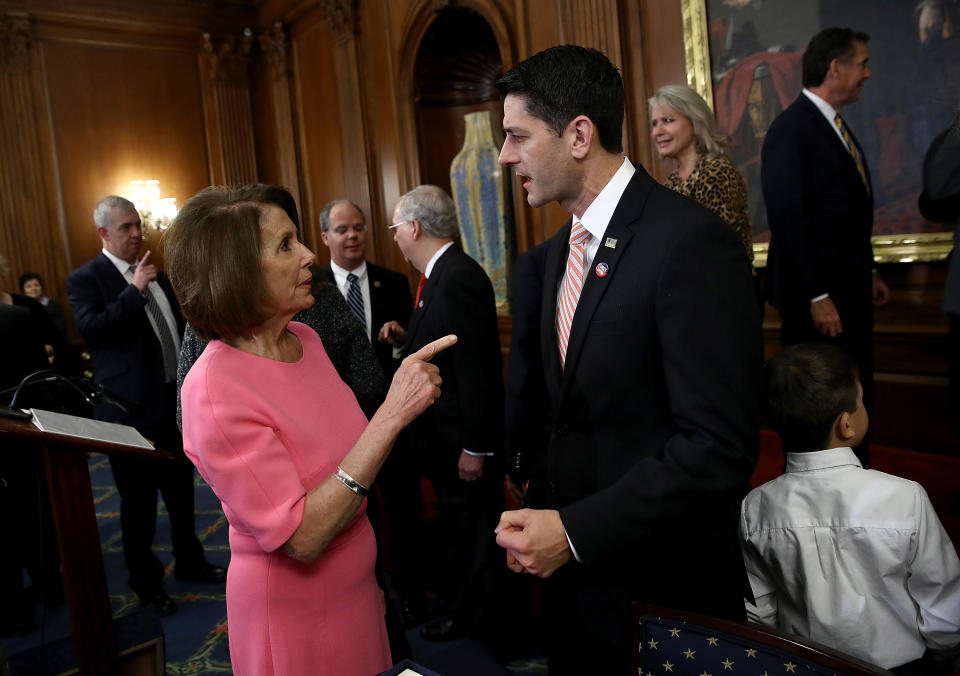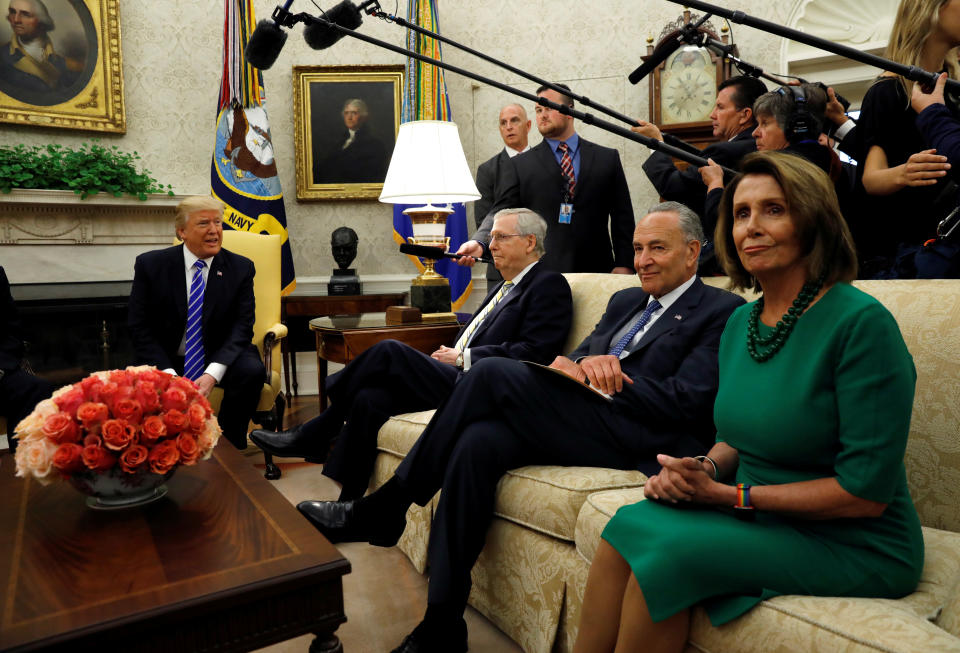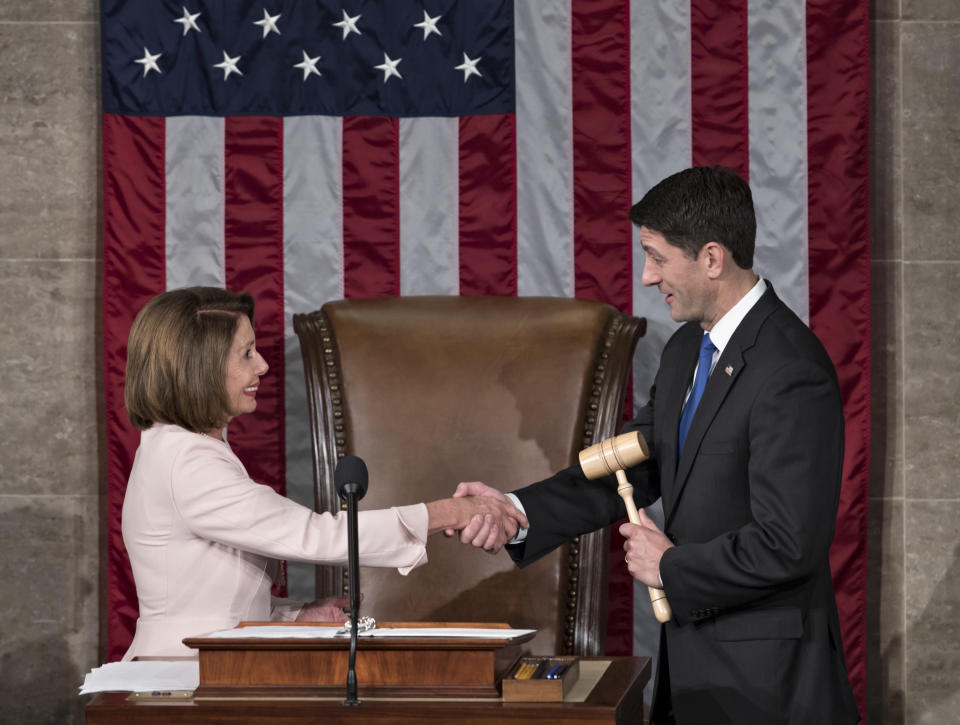Poll: Americans think Congress should ditch partisanship and embrace compromise
A Gallup poll published Monday morning found that 54 percent of Americans wish politicians in Washington would compromise to get things done. Only 18 percent want political leaders to stick to their beliefs even if it accomplishes little — a new low. And 28 percent fall somewhere in the middle. The gap between compromising and sticking to one’s principles is the widest since Gallup started asking the question in 2010.
Forty-four percent of Republican voters and independents who lean Republican would prefer leaders to compromise, and only 23 percent favored the alternative: leaders sticking to their beliefs. Meanwhile, 62 percent of Democrats and independents who lean Democratic favored compromise, and only 12 percent favored sticking to their beliefs.
“The general idea that we have to hold out for our beliefs at all costs goes against the will of the people,” Frank Newport, the editor-in-chief at Gallup, told Yahoo News. “I think one of the greatest problems facing America today is the public’s disdain and lack of confidence in their elected representatives. I think these data show what the public would like them to do, which would allow them to recover a little of that respect. Whether they do it or not remains to be seen.”

Over the past few years, the general pattern has shown that Democrats are more likely than Republicans to prefer compromise — a pattern that predates President Trump’s administration and the recent Republican congressional majorities.
“Prior to Trump, we certainly still saw this extremely low respect for the legitimacy of Congress,” Newport said.
Amy Gutmann, president and a political science professor at the University of Pennsylvania, and Dennis Thompson, a political philosophy professor at Harvard University, argue that the intrusion of campaigning into actual governance — known as the “permanent campaign” — fosters attitudes that make compromise far more difficult.
They published an essay, “Perspectives on Politics,” about how this uncompromising mindset is conducive to campaigning but not to governing.

“The uncompromising mindset can be kept in check by an opposite cluster of attitudes and arguments — the compromising mindset — that inclines politicians to adapt their principles and respect their opponents,” Gutmann and Thompson wrote. “This mindset is more appropriate for governing, because it enables politicians more readily to recognize and act on opportunities for desirable compromise.”
Republicans, including Trump, have struggled to push through major legislative items through Congress despite controlling a majority in both chambers. Notably, GOP leaders attempted to force through an overhaul of the Affordable Care Act, also known as Obamacare, through a party-line vote without making concessions to the Democrats.
Trump has since stepped back a bit from the party-line strategy, signaling openness to working with Democrats on legislation to protect young immigrants who were shielded from deportation by the Obama-era Deferred Action for Childhood Arrivals (DACA) program. But on Sunday, he pledged to help protect these children while laying out a list of “principles” that Republicans want in return, including a crackdown on unaccompanied minors entering the U.S. and more money to fund his U.S.-Mexico border wall.
He also sided with “Chuck and Nancy” — Senate Minority Leader Chuck Schumer, D-N.Y., and House Minority Leader Nancy Pelosi, D-Calif. — on a deal to keep the government open for three months.

Congress suffered its worst approval rating in Gallup’s history during the last government shutdown in October 2013 — after congressional leaders couldn’t compromise on a budget bill.
Sarah A. Binder, a senior fellow of governance studies at the Brookings Institution, a nonpartisan think tank in Washington, D.C., wrote back in 2000 that gridlock is in many ways “endemic to our national politics” and “the natural consequence” of our separation of powers.
“Nudging Congress back to the center by sending more centrist legislators to Washington would be one way to alleviate gridlock,” Binder said. “Still, diagnosing the ills of a body politic is one thing; rousing the patient to seek treatment is another.”
Newport of Gallup said he thinks the public would applaud Trump if he were to follow through on reaching some kind of compromise with the Democrats on immigration, health care, tax reform or another major issue.
“But the one group that is more in favor of sticking to principle are those who are very conservative. That’s a small percentage of the population, but those are very active voters in Republican primaries,” Newport said. “You’ve got a situation now where any Republican officeholder is going to be confronted in a primary by these very conservative [voters]. That’s one of the reasons we have the situation we do.”
Read more from Yahoo News:



